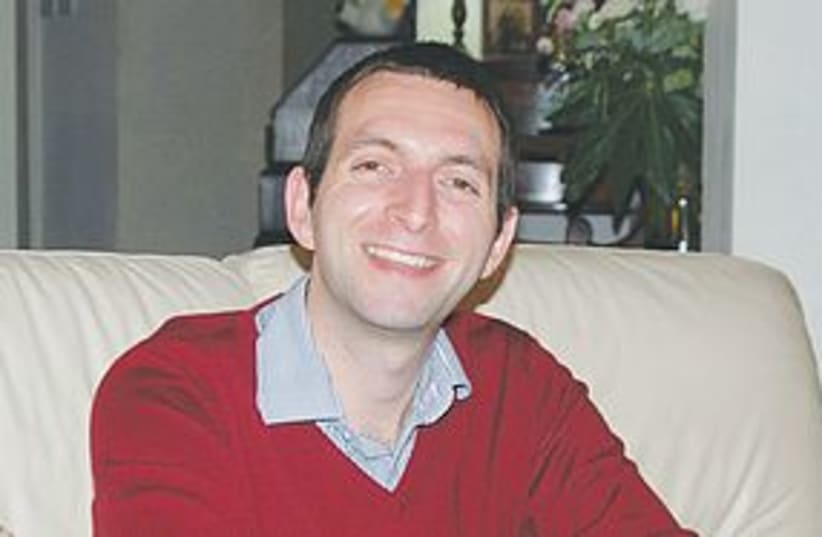Life in IsraelWhat with work and acquiring and improving an apartment, his rapping in Israel hasn’t yet gotten into its stride, but he hopes to have more time to devote to music in the future. Music has always played an important role in his life. His father was an amateur singer and songwriter and his mother a keen dancer. One wonders why he chose rap to express his powerful feelings about Israel.“First of all, you don’t actually need to be able to sing,” he says with a smile. “And because it’s so verbose, you can put across a lot more information. In fact, it’s a modern form of poetry, and I am able to express very deep feelings in my rap. Can anyone do rap? Anyone can write the words, but you do need a sense of rhythm to get the timing right.”In February, he was asked to launch a month-long “read-a-thon” event for a nonprofit organization called AHAVA, which is dedicated to promoting English literacy for children in Israel. He performed live at the Ma’aleh Adumim mall, read a short story for the children and, of course, introduced them to rapping. By all accounts, the event was a huge success.CircleGreen has made many friends since arriving in Tel Aviv, as well as reconnecting with people he knew before from his gap year. He has found kindred spirits especially among other young people from Europe, rather than England.“I didn’t see my place in Anglo-Jewry, so I didn’t want to come here and live in Anglo- Jewry in Israel,” he says. “Somehow the European mind-set suits me better.”PlansOnce he has finalized his living accommodations, he intends to start rapping again, with the aim of changing the skewed perception that Zionism has in the outside world. What started out as a national liberation movement is now used as an insult, and this, he feels, is unacceptable.“I want people to be aware of what it actually means,” says Green.
Arrivals: Antithesis of a Rapper
Samuel Green, 27, from Kingston, London, to Tel Aviv, June 2010.

Life in IsraelWhat with work and acquiring and improving an apartment, his rapping in Israel hasn’t yet gotten into its stride, but he hopes to have more time to devote to music in the future. Music has always played an important role in his life. His father was an amateur singer and songwriter and his mother a keen dancer. One wonders why he chose rap to express his powerful feelings about Israel.“First of all, you don’t actually need to be able to sing,” he says with a smile. “And because it’s so verbose, you can put across a lot more information. In fact, it’s a modern form of poetry, and I am able to express very deep feelings in my rap. Can anyone do rap? Anyone can write the words, but you do need a sense of rhythm to get the timing right.”In February, he was asked to launch a month-long “read-a-thon” event for a nonprofit organization called AHAVA, which is dedicated to promoting English literacy for children in Israel. He performed live at the Ma’aleh Adumim mall, read a short story for the children and, of course, introduced them to rapping. By all accounts, the event was a huge success.CircleGreen has made many friends since arriving in Tel Aviv, as well as reconnecting with people he knew before from his gap year. He has found kindred spirits especially among other young people from Europe, rather than England.“I didn’t see my place in Anglo-Jewry, so I didn’t want to come here and live in Anglo- Jewry in Israel,” he says. “Somehow the European mind-set suits me better.”PlansOnce he has finalized his living accommodations, he intends to start rapping again, with the aim of changing the skewed perception that Zionism has in the outside world. What started out as a national liberation movement is now used as an insult, and this, he feels, is unacceptable.“I want people to be aware of what it actually means,” says Green.